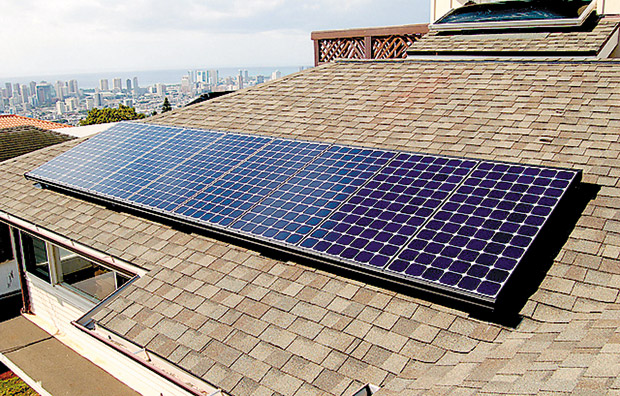Many people think Hawaii’s solar tax credits are a thing of the past. They hear building permits are down and think the solar industry is doomed, but that’s not true. Solar is alive and well. There are still 30 percent federal, 35 percent state tax credits and financing options that save you money from day one. Here are other misconceptions about switching to clean home energy in Hawaii:
My neighborhood is “saturated,” I can’t go solar.
Hawaiian Electric Company’s (HECO) earlier programs — Net Energy Metering (NEM) and Customer Grid Supply (CGS) — allowed consumers to receive credits when they “sold” excess power generated by their systems to HECO. Neighborhoods were deemed “saturated” when the production capacity of solar PV systems in that neighborhood exceeded 250 percent of the daytime minimum load on its circuit. While HECO did not reject applications for new systems, technical reviews could take years and result in expensive grid infrastructure improvement fees to install solar. Enter the Self-Supply program because Self-Supply systems store energy in batteries instead of exporting it to the grid; “saturation” is no longer an issue and almost any home is able to install a system.
Batteries make solar energy too expensive.
Absolutely not! A Self-Supply system pairs a photovoltaic (PV) system with an on-site battery to store power for use at night. Many people think these batteries make a solar system too expensive. But in actuality, consumers will pay up to 35 percent more with HECO than with a solar and storage lease. Some customers who have the option to sign up under Grid-Supply found they actually save more money with Self-Supply.
Battery systems also provide a backup power supply when the grid goes down. So homeowners will have power for the fridge, the internet and TVs when they need it most — like during the Super Bowl!
Payback period on a PV system is too long.
Not true. Current lease and loan programs cost $0 down. With lower electricity costs than you were paying HECO, you start saving money from day one.
Solar approval takes forever.
Back in the NEM and CGS days, this was certainly the case. It often took years for HECO to approve a system design. However, times have changed. Most Self-Supply systems receive approval within 30 days.
SMART HOMES LIVE, IN ACTION
By constantly expanding smart home offerings and being a regular meeting place for the public, RevoluSun Smart Home’s free monthly seminars have been packed. The next seminar is Saturday, March 18, 10-11 a.m., at 210 Ward Ave., Ste. 140. This is a free event. Space is limited, so RSVP at RevoluSun.com. Also, to see a smart home in action, visit the smart home open house Saturday, April 1, 10 a.m.-3 p.m. at 273 Ulua St., Niu Valley.
REVOLUSUN SMART HOME
contact // 748-8888
web // RevoluSun.com
address // 210 Ward Ave., Ste. 140
See more articles from: RevoluSun
